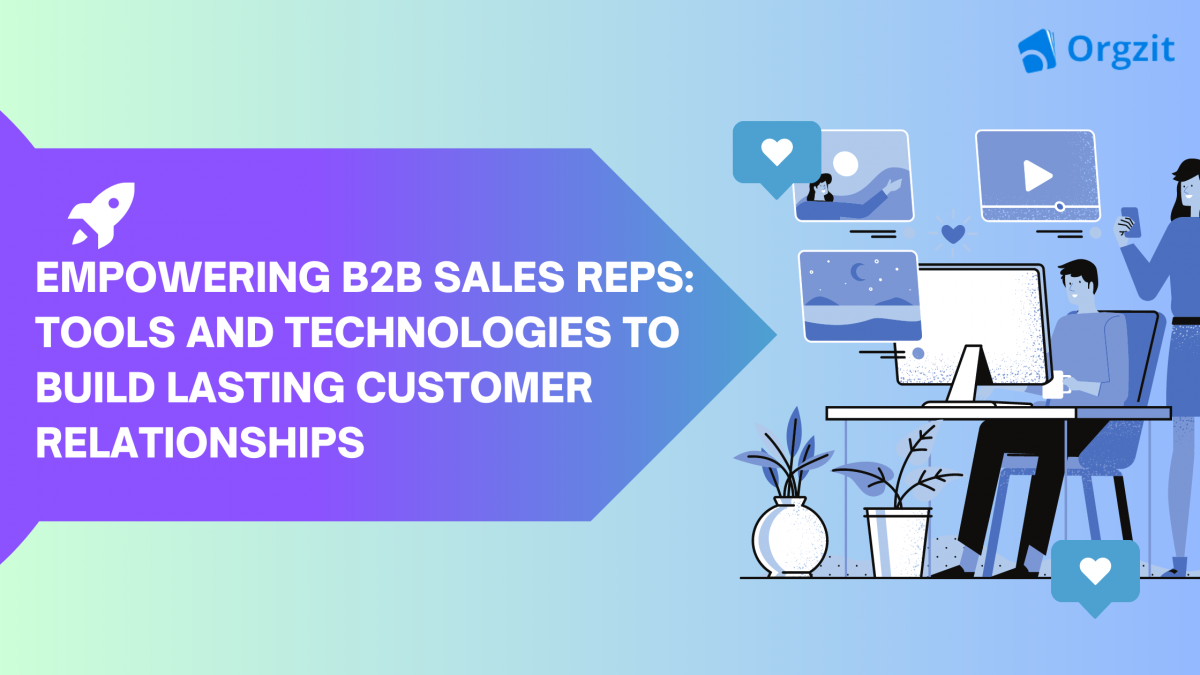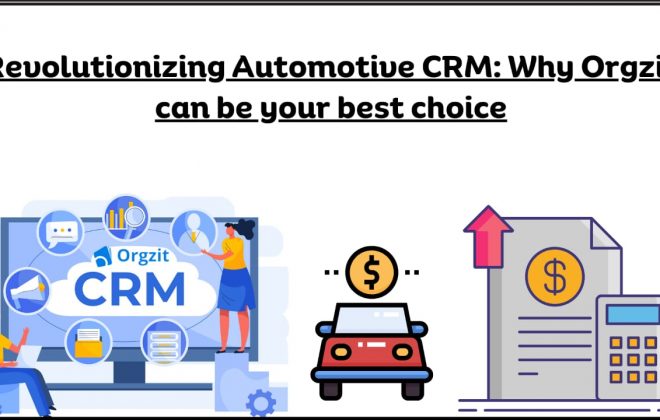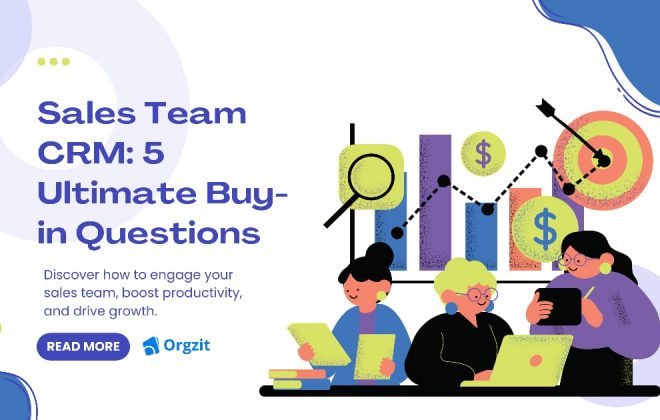Tools and Technologies for B2B Sales Reps: Building Customer Relationships
Welcome to the wonderful world of B2B sales, where building strong relationships with customers is as essential as coffee is to a Monday morning. But let’s be honest; managing these relationships can sometimes feel overwhelming. Thankfully, with the help of advanced sales technology, B2B sales reps now have access to a range of tools and technologies that can make relationship-building easier than getting a toddler to eat their vegetables. Tools and Technologies for B2B Sales Reps can help businesses grow faster and easier. Sales tools can help in capturing and organizing customer data, tracking customer interactions, and automating sales activities.
This article will dive into best practices while using tools and technologies for B2B sales reps. We have 5 best strategies to help you build and maintain strong customer relationships. These strategies can work in conjunction with your sales tools. Later in the article, we’ll show you how to implement them effectively. We’ll also explore why building strong customer relationships is crucial for success in the B2B sales world, and we might even throw in a few tips along the way. So, buckle up and get ready to learn how to become a relationship-building superstar!
Sales Technology Best Practices for Strong Customer Relationships
Revolutionize B2B sales by utilizing the power of sales technology. With CRM software, B2B sales reps can personalize communication, simplify processes, and boost customer retention.
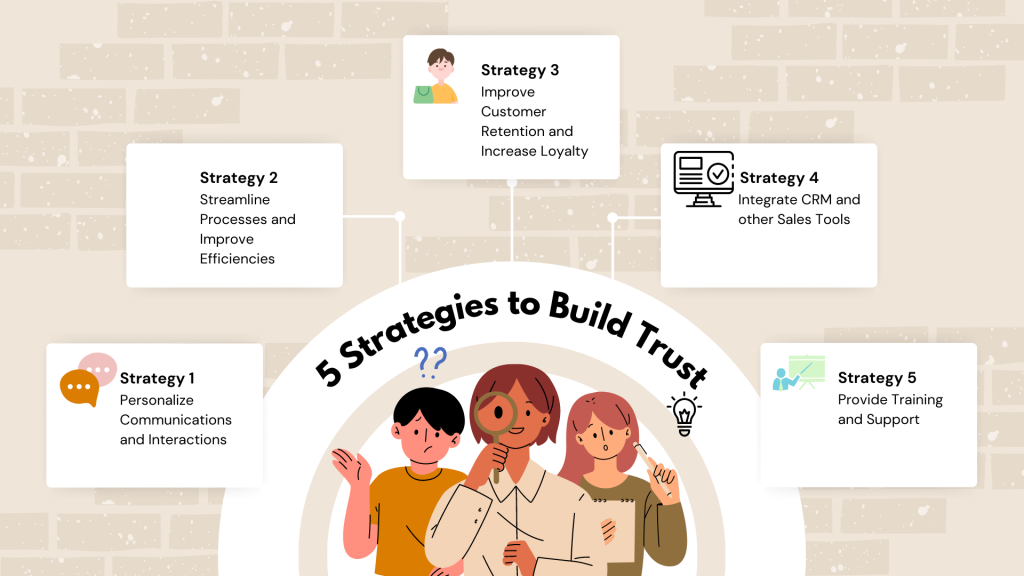

In this section, we’ll explore best practices for building strong customer relationships with a focus on sales tools like CRM. Level up your sales game and provide a superior customer experience that drives sales performance.
Strategy 1: Personalize Communication and Interactions
Personalizing communication and customer interactions is one of the most effective ways to build strong customer relationships. To personalize communication and interactions with customers using sales CRM software, B2B sales reps can:
- Use customer data to personalize email marketing campaigns: With sales CRM software, sales reps can group customers based on their preferences and purchase history. And thus, create targeted email marketing campaigns that connect with their customers.
- Utilize real-time customer data to provide personalized service: Sales reps can access real-time customer data during customer interactions in a sales CRM. Sales CRM can provide personalized service and recommendations.
- Utilize personalized outreach to build relationships: By using customer data to personalize outreach efforts, such as follow-up calls and emails, sales reps can build stronger customer relationships. Sales CRMs allow such personalized communication with ease and simplicity.
Strategy 2: Streamline Processes and Improve Efficiency
By automating certain tasks and providing a centralized system for managing customer data, sales reps can save time and focus on building stronger customer relationships.
To leverage sales CRM software to streamline processes and improve efficiency, B2B sales reps can:
- Automate follow-up tasks: With sales CRM software, sales reps can automate follow-up tasks, such as appointment reminders and thank-you notes. This will allow them to save time and improve efficiency.
- Use sales data to prioritize tasks: Sales CRM software gives sales reps insights into customer behavior and sales trends, allowing them to prioritize tasks and focus on the most promising opportunities.
Strategy 3: Improve Customer Retention and Increase Loyalty
By providing a superior customer experience, sales reps can encourage repeat business and foster long-term partnerships.
To use sales CRM software to improve customer retention and increase loyalty, B2B sales reps can:
- Use customer data to anticipate needs: By using sales CRM software to analyze customer data, sales reps can anticipate customer needs and provide proactive service and support.
- Provide ongoing support and training: By using sales CRM software to track customer interactions and behavior, sales reps can identify areas where customers may need additional support or training, which can help increase customer satisfaction and loyalty.
- Use customer feedback to improve service: By using sales CRM software to collect and analyze customer feedback, sales reps can identify areas where they can improve service and support, which can help increase customer satisfaction and loyalty.
Strategy 4: Integrate Sales CRM with Other Sales Tools
By integrating these tools, sales reps can gain a more comprehensive view of customer behavior and sales performance, which can help them make more informed decisions and improve overall sales effectiveness.
To integrate sales CRM with other sales tools, B2B sales reps can:
- Integrate marketing automation: By integrating sales CRM with marketing automation, sales reps can track the effectiveness of marketing campaigns and gain insights into customer behavior.
- Integrate sales analytics: By integrating sales CRM with sales analytics, sales reps can gain insights into sales performance and identify areas for improvement.
- Use mobile apps to stay connected: Using mobile apps that integrate with sales CRM software, sales reps can stay connected with customers and access customer data on the go.
Strategy 5: Provide Training and Support
Finally, to ensure that B2B sales reps are using sales CRM software effectively to build strong customer relationships, it is important to provide training and support.
To provide training and support for sales CRM software, B2B sales organizations can:
- Provide initial training: Sales reps should receive initial training on using the software and its various features.
- Provide ongoing support: Sales reps should have access to ongoing support, such as a help desk or customer service team, to assist with any questions or issues.
- Encourage feedback: Sales reps should be encouraged to provide feedback on the software to help improve its effectiveness and usability.
How to Choose the Best Sales Technology to Boost Your Sales?
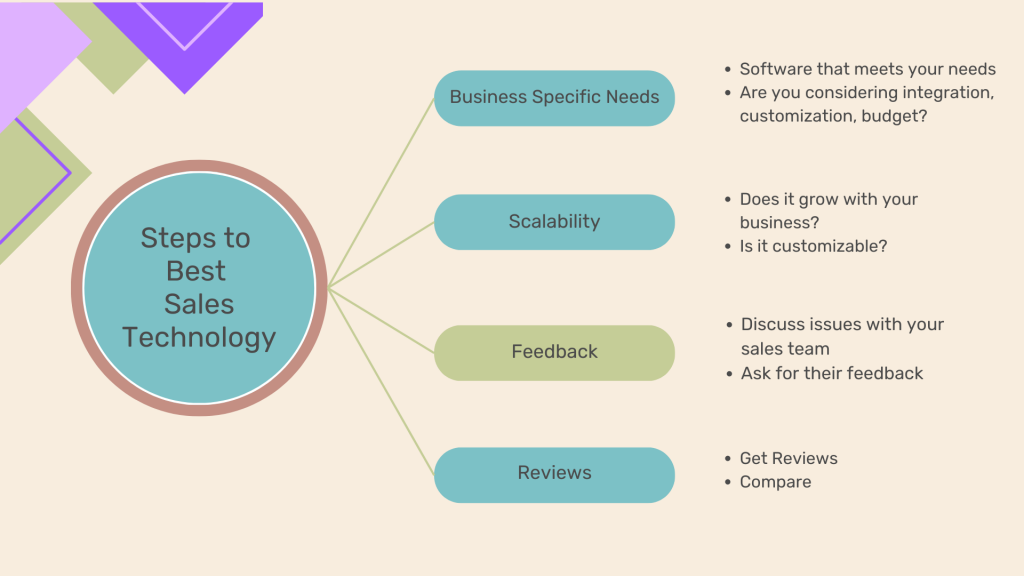

Evaluate your option of sales technology based on the above factors. Now, narrow down your options and choose the best for your needs. Here are some tips to help you make the right decision:
Tip 1: Prioritize Your Needs
Based on your evaluation of sales technology options, prioritize your needs and determine which software best meets those needs. For example, choose software with strong integration capabilities, like an all-in-one CRM, if your top priority is integration with other tools.
Tip 2: Consider the Scalability of Sales Tools
Consider the scalability of the software. Will it be able to grow with your business? Can it accommodate an increasing number of users and data?
Tip 3: Get User Feedback
Talk to your sales team and get their feedback on the software. Do they find it easy to use? Does it meet their needs? This feedback can help you make a more informed decision. Check out customer success stories of related companies who have used CRM tools for their business growth and streamline their sales cycle.
Tip 4: Read Reviews of Sales Technology
Read reviews of the software from other businesses in your industry. What do they like and dislike about the software? This information can help you make an informed decision. G2 reviews and similar websites can help you find the best software for your needs.
Questions to Ask Vendors and Demos to Request
When evaluating sales technology options, asking vendors the right questions and requesting demos to see the software in action is important. Here are some questions to ask:
Question 1: What specific sales challenges does your software address?
Ask the vendor to explain how their software can address your sales challenges.
Question 2: How intuitive is your software?
Ask the vendor to explain how easy their software is to use and navigate.
Question 3: What integration capabilities does your software have?
Ask the vendor to explain how their software can integrate with other sales tools and technologies.
Question 4: What support and training do you provide?
Ask the vendor to explain what support and training they provide for their software.
Question 5: Can you provide a Demo?
Request a demo of the software to see it in action and evaluate its features and user experience.
To Conclude,
In conclusion, sales technology, specifically CRM systems, can greatly benefit B2B sales reps looking to build strong customer relationships. CRM systems can help B2B sales reps better understand their customers, develop more effective sales strategies and ultimately drive business growth by capturing and organizing customer data, tracking customer interactions, and automating sales activities.
To leverage the power of sales technology for customer relationship management, B2B sales reps should take actionable steps such as evaluating their specific needs, researching and comparing different CRM options, and leveraging the features and functionalities of their chosen system to their fullest potential. By doing so, they can improve their customer relationships and ultimately drive greater success in their sales efforts.


